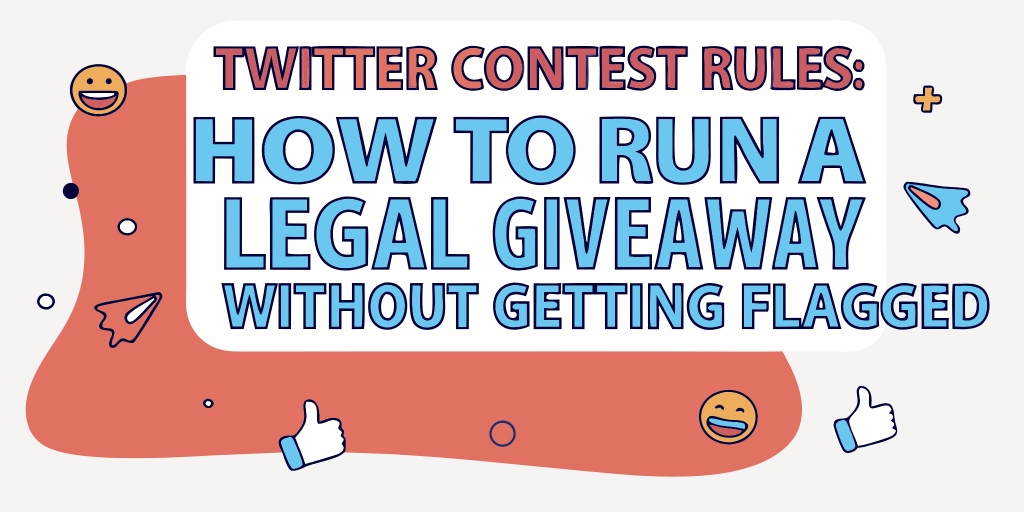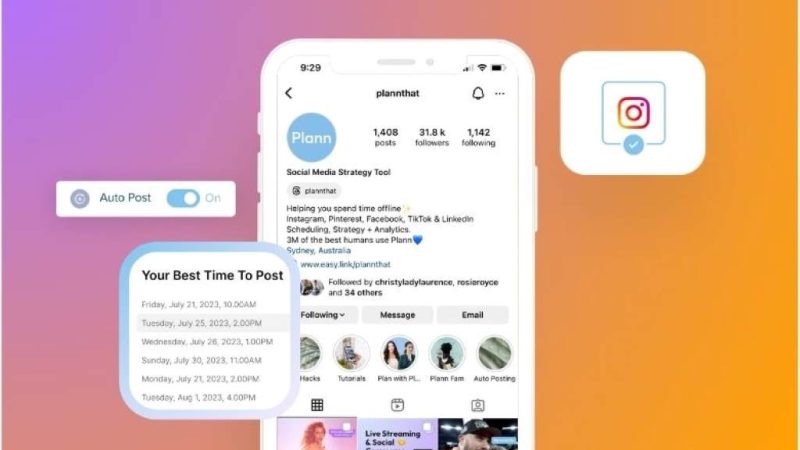Running a Twitter contest can boost engagement, grow your audience, and create buzz around your brand. However, without proper planning, your giveaway could violate Twitter’s rules or local laws, leading to penalties or account suspension. To ensure success, you need clear, compliant rules that protect your brand and participants. At Cakra Studio, we specialize in helping businesses navigate social media marketing legally and effectively. This article outlines how to run a Twitter contest legally, covering essential steps, rules, and tips to keep your giveaway compliant and engaging.
Why Legal Compliance Matters for Twitter Contests
Twitter contests are a powerful way to connect with your audience, but they come with risks if not executed properly. Non-compliance with Twitter’s guidelines or legal regulations can result in your contest being flagged, your account suspended, or even legal action from participants. Therefore, understanding the rules is critical to running a successful giveaway.
To get started, familiarize yourself with Twitter’s official guidelines for promotions and contests. Additionally, you must comply with local laws in your country and the countries of your participants. For expert insights on how to run a Twitter contest legally, resources like those from Cakra Studio can guide you through the process. By following these guidelines, you can avoid costly mistakes and ensure a smooth, engaging contest.
Understanding Twitter’s Contest Guidelines
Twitter has specific rules for running contests to ensure fairness and transparency. Violating these can lead to your contest being removed or your account being penalized. Here’s what you need to know:
- Discourage spam behavior. Twitter prohibits encouraging users to create multiple accounts or post repetitive content to increase their chances of winning. For example, avoid asking participants to “retweet 10 times” to enter.
- Clearly state eligibility. Specify who can participate, including age and location restrictions. This ensures compliance with local laws and Twitter’s terms.
- Include official rules. Provide a link to a page with detailed contest rules, including entry methods, prize details, and deadlines.
- Avoid misleading promotions. Ensure your contest doesn’t imply Twitter endorses or sponsors it. Always include a disclaimer like, “This promotion is not affiliated with Twitter.”
By adhering to these guidelines, you create a fair and transparent contest that aligns with Twitter’s policies.
Complying with Legal Requirements
Beyond Twitter’s rules, you must follow local and international laws. These vary by region, so research is essential. Here are key legal considerations:
- Eligibility restrictions. Many regions require participants to be at least 19, as minors may need parental consent. Clearly state age and geographic restrictions in your rules.
- Prize transparency. Disclose the prize’s value, quantity, and any conditions, such as taxes or shipping fees the winner must cover.
- Official rules page. Create a dedicated page for your contest rules, outlining entry methods, deadlines, and how winners will be selected and notified.
- Tax compliance. In some countries, winners are responsible for reporting prizes as taxable income. Inform participants of any tax obligations.
- Data privacy. If you collect personal information, comply with data protection laws like GDPR (in Europe) or CCPA (in California). Explain how you’ll use and store data.
Consulting a legal professional can help ensure your contest meets all applicable regulations. This step is especially important for international giveaways.
Crafting Clear Contest Rules
Clear rules prevent confusion and protect your brand. Your contest rules should be easy to find and understand. Here’s how to create them:
- Use simple language. Avoid legal jargon. Write rules that a general audience can understand.
- Detail entry methods. Specify how participants can enter, such as retweeting, using a hashtag, or tagging friends. For example, “Retweet this post and follow our account to enter.”
- Set a clear deadline. Include the contest’s start and end dates, including the time zone (e.g., “Contest ends on December 15, 2025, at 11:59 PM EST”).
- Explain winner selection. Describe how winners will be chosen, whether randomly or based on criteria like creativity.
- List prizes. Provide details about the prize, including its value and any restrictions (e.g., “Prize is non-transferable”).
Post a link to your rules in your contest tweet and pin it to your profile for easy access. This transparency builds trust with participants.
Designing an Engaging Twitter Contest

A legal contest can still be fun and engaging. The key is to balance creativity with compliance. Here are tips to make your giveaway stand out:
- Choose a relevant prize. Offer something your audience values, like a product sample, gift card, or exclusive experience.
- Keep entry simple. Complex entry methods discourage participation. Stick to actions like retweeting, liking, or commenting with a hashtag.
- Use eye-catching visuals. Include images or videos to grab attention. Ensure visuals comply with Twitter’s content guidelines.
- Promote your contest. Share your contest tweet multiple times and encourage participants to share it with their followers.
For example, a coffee shop might run a contest asking followers to share their favorite coffee order with a branded hashtag for a chance to win a gift card. This approach is simple, engaging, and compliant.
Avoiding Common Pitfalls
Even well-intentioned contests can face issues if not carefully planned. Here are common mistakes to avoid:
- Ignoring local laws. Failing to research legal requirements can lead to penalties. Always check regulations in your participants’ regions.
- Vague rules. Ambiguous rules cause confusion and disputes. Be specific about eligibility, prizes, and entry methods.
- Overcomplicating entries. Asking for excessive actions, like tagging multiple friends or posting daily, can deter participants and violate Twitter’s rules.
- Not verifying entries. Ensure participants meet eligibility criteria before selecting winners to avoid disputes.
Regularly monitor your contest for compliance and engagement. Respond to questions promptly to maintain transparency.
Promoting Your Contest Safely
Effective promotion increases your contest’s reach without breaking rules. Here’s how to spread the word safely:
- Use hashtags. Create a unique, branded hashtag to track entries and boost visibility.
- Pin your contest tweet. Pinning ensures followers see your contest first when visiting your profile.
- Collaborate with influencers. Partner with influencers to share your contest, but ensure they disclose the partnership per advertising regulations.
- Schedule posts. Post reminders about your contest at different times to reach a wider audience.
Avoid spammy tactics, like asking participants to tag excessive friends or post repetitive content. These can trigger Twitter’s spam filters.
Announcing Winners Properly
Announcing winners transparently builds trust and maintains compliance. Follow these steps:
- Verify eligibility. Confirm winners meet age, location, and entry requirements.
- Notify privately first. Contact winners via direct message to collect prize delivery information.
- Announce publicly. Share a tweet congratulating winners, but avoid sharing personal details without consent.
- Document the process. Keep records of how winners were selected in case of disputes.
For example, tweet: “Congratulations to our giveaway winners! We’ve contacted you via DM. Thanks to all who entered!” This approach is professional and compliant.
Read More Also: What Does “Accept Friend on Snapchat” Mean?
Conclusion
Running a Twitter contest legally requires careful planning, clear rules, and adherence to Twitter’s guidelines and local laws. By crafting transparent rules, choosing engaging prizes, and avoiding common pitfalls, you can create a successful giveaway that boosts your brand without risking penalties. Always prioritize compliance, transparency, and participant trust to ensure a positive experience. With these steps, your Twitter contest will be both legal and impactful.
Read More Also: How to Effectively Use LinkedIn’s Creator Mode to Build a Personal Brand
Frequently Asked Questions
Do I need a lawyer to run a Twitter contest?
While not always necessary, consulting a lawyer can ensure compliance with local and international laws, especially for large or international contests.
Can I run a Twitter contest in multiple countries?
Yes, but you must comply with the laws of each country where participants reside. Research local regulations or consult a legal expert.
What happens if my contest violates Twitter’s rules?
Twitter may remove your contest, suspend your account, or limit your visibility. Always follow their promotion guidelines to avoid issues.
How do I collect participant data legally?
Disclose how you’ll use and store data, and comply with privacy laws like GDPR or CCPA. Include this in your contest rules.
Can I ask participants to tag friends to enter?
Yes, but keep it reasonable. Asking for excessive tags can violate Twitter’s spam rules. Stick to one or two tags per entry.







